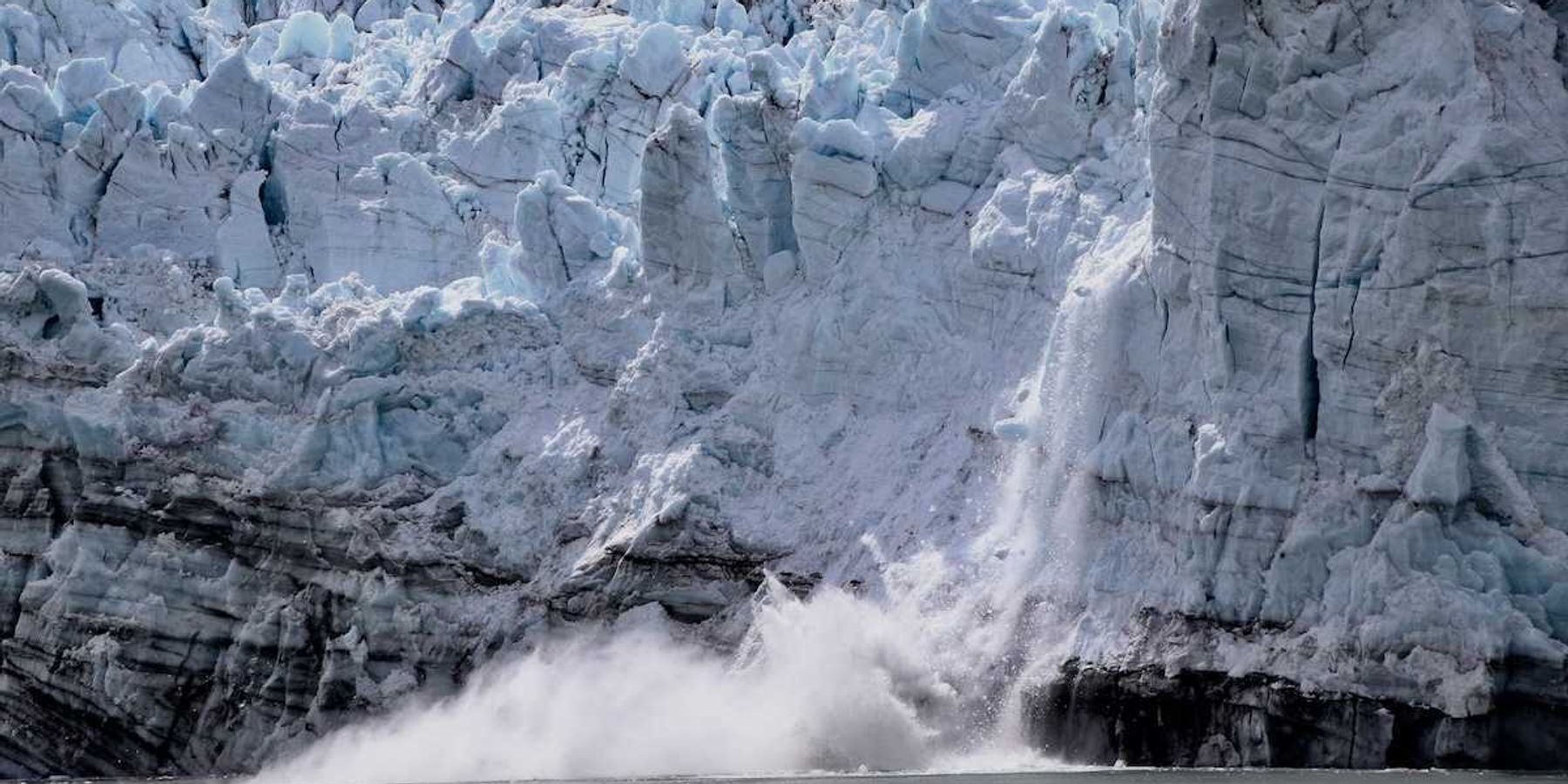science
Methane emissions surge, scientists urge immediate action
Methane emissions, a potent greenhouse gas, are rising rapidly, posing a significant threat to the climate and requiring urgent mitigation efforts, scientists warn.
In short:
- Methane emissions have been increasing at the fastest rate in decades since 2006.
- The Global Methane Pledge aims for a 30% reduction by 2030, but current policies cover only 13% of emissions.
- Methane is 80 times more effective at trapping heat than CO2 but dissipates faster, offering a quicker path to reducing global warming.
Key quote:
"Methane is the strongest lever we can quickly pull to reduce warming between now and 2050."
— Drew Shindell, climate scientist at Duke University
Why this matters:
Unchecked methane emissions accelerate global warming and exacerbate climate impacts. Addressing methane offers an immediate way to slow temperature increases and mitigate near-term climate risks.
Storytelling panel at the Bloomberg Green Festival highlights the power of narrative in climate and environmental advocacy
In the last session of the Green Festival, a panel of writers, producers and scientists discussed the crucial role of storytelling in the climate movement and demonstrated how compelling narratives can drive environmental change.
In short:
- Dr. Shanna Swan presented alarming data on how environmental toxins are affecting human fertility, emphasizing the importance of communicating these issues effectively.
- Scott Z. Burns shared his experience as a producer for the Academy Award-winning 2006 documentary, "An Inconvenient Truth." emphasizing the need to connect emotionally with diverse audiences.
- Anna Jane Joyner highlighted her personal journey from the evangelical community to climate advocacy, stressing the emotional impact of storytelling.
Key quote:
"It's not just males. And it's not just semen quality. Men have other things to worry about, right? They worry a lot about the size of their genitals. They're getting smaller.”
— Dr. Shanna Swan, professor at Mt. Sinai & UCSF and senior scientist at EHS
Why this matters:
Storytelling can bridge the gap between scientific facts and public engagement, making complex environmental issues relatable and communicating urgency. By harnessing the power of narrative, advocates can inspire action and drive policy changes crucial for environmental protection.
To learn more about Dr. Swan’s research into links between toxic chemicals and fertility decline, listen to her fascinating conversation with EHN senior editor Brian Bienkowski.
Dutch and American climate deniers team up as Europe leans right
A climate denial conference in the Netherlands shows growing ties between Dutch and American groups, reflecting a broader rightward shift in Europe.
Nina Tea Zibetti, Alexander Beunder, Merel de Buck and Jilles Mast report for DeSmog.
In short:
- Clintel's fifth anniversary conference showcased speakers like Gregory Wrightstone and Willie Soon, emphasizing CO2's purported benefits and mocking renewable energy.
- The event underscored growing connections between Dutch climate deniers and U.S.-based organizations like the CO2 Coalition, which has financial backing from major American oil interests.
- The rise of far-right political parties in the Netherlands, such as PVV and BBB, aligns with Clintel's anti-regulation stance, giving climate denial more media attention and political influence.
Key quote:
"I embrace that high carbon lifestyle […] CO2 is showing huge, huge benefits and so we should celebrate it."
— Gregory Wrightstone, climate science denier and executive director of CO2 Coalition
Why this matters:
The strengthening ties between Dutch and American climate deniers could undermine international climate efforts, promoting policies that ignore or downplay the dangers of climate change. This trend reflects a broader political shift that could have significant environmental and policy implications globally.
Scientists warn of major ice sheet loss due to small temperature rise
A minor increase in ocean temperature could drastically accelerate ice sheet melting and raise sea levels much more than current models predict.
In short:
- Warm seawater intruding under coastal ice sheets melts them, creating cavities that further enhance melting and ice loss.
- Computer models show that even a small rise in water temperature could trigger significant ice sheet collapse.
- This process may be responsible for underestimating past sea level rises and poses severe future risks.
Key quote:
“With every tenth of a degree of ocean warming, we get closer and closer to passing this tipping point.”
— Dr. Alexander Bradley, British Antarctic Survey
Why this matters:
The urgency of addressing climate change becomes more apparent with each new study. Reducing greenhouse gas emissions, investing in renewable energy, and enhancing coastal resilience are steps that must be accelerated to prevent the most severe outcomes of a warming planet.
Related EHN coverage:
Federal agencies move to protect climate science from political interference
Federal agencies are implementing measures to safeguard scientific research from potential political meddling.
Maxine Joselow and Scott Dance report for The Washington Post.
In short:
- The U.S. Environmental Protection Agency's new contract includes provisions allowing employees to report political meddling without fear of retribution.
- Policies to protect scientific integrity are being strengthened at NOAA and the Commerce Department.
- Advocates argue these measures are necessary but not foolproof against future political changes.
Key quote:
“It will be impossible to fully Trump-proof any agency or protect any scientist if Trump wins a new term and either the House or Senate is in Republican control. Then there will be absolutely no meaningful oversight.”
— Tim Whitehouse, executive director of Public Employees for Environmental Responsibility
Why this matters:
The integrity of scientific research, especially on climate change, is vital for informed policy-making and public trust. Safeguarding these processes from political interference ensures that decisions are based on accurate and unbiased information.
Related EHN coverage:
California officials see new Mexican president as a strong ally in climate policy
California leaders welcome Claudia Sheinbaum's election as Mexico's new president, anticipating collaboration on climate change and clean energy initiatives.
In short:
- Claudia Sheinbaum, a climate scientist and engineer, is Mexico's newly elected president, offering potential for enhanced cross-border climate cooperation.
- California officials are optimistic about partnering with Sheinbaum on clean energy and environmental issues, given her background and commitment to renewable energy.
- The relationship between California and Mexico has been strong, with agreements in place to address climate challenges such as drought and transportation emissions.
Key quote:
“Having an engineer whose background is working on climate, it’s a big deal.”
— Eduardo Garcia, Assemblymember
Why this matters:
Sheinbaum’s presidency could strengthen California's climate efforts through joint projects, particularly in renewable energy and emissions reduction. Her scientific expertise and focus on sustainable development align with California's environmental priorities.
World on brink of surpassing critical climate threshold, UN warns
The United Nations cautions that imminent climate targets may be breached, with global temperatures predicted to exceed 1.5 degrees Celsius, urging immediate action to mitigate severe future impacts.
In short:
- A survey revealed that nearly 80% of top IPCC scientists anticipate a temperature rise above catastrophic levels.
- The urgency for action is echoed by climate leaders, emphasizing the narrow window to adhere to the 1.5C goal.
- Stakeholders express frustration over the disconnect between scientific warnings and political, economic actions.
Key quote:
"The science is clear and so are the world’s scientists: the stakes for all humanity could not be higher."
— Official spokesperson for António Guterres, UN Secretary General
Why this matters:
This expected increase in temperatures isn't just a matter of hotter days; it encompasses a cascade of effects that could severely disrupt ecosystems, economies, and livelihoods. Rising sea levels, more frequent and severe weather events like hurricanes and droughts, and significant impacts on biodiversity are just a few of the potential consequences. These changes threaten to overwhelm natural and human systems, which are already struggling to cope with current climate variability.









